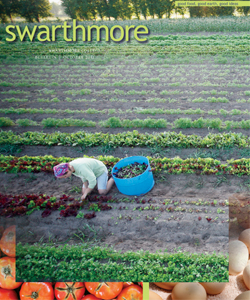Aristotelian Wisdom: Virtue for the Have-Nots
In an excerpt from their book Practical Wisdom (“The Janitor and the Judge,” April Bulletin), Barry Schwartz and Kenneth Sharpe seek to deepen our understanding of ethical choice in contemporary life by combining examples, the social actors’ own reflections, and Aristotelian philosophy. What they actually offer, however, is a warmed-over version of a 19th-century ethic, familiar from Victorian novels and TV movies. It’s the narrative of the magnanimous underling, the wife/mother/servant/Jewess/slave/poor-but-honest-worker who rises above societal injustice. In that narrative, virtue for the have-nots consists in looking with charitable understanding at the haves; it does not include the strident temptations of socialism, trade unionism, feminism, or demands for racial equality.
Pushing the morality of virtuous suffering in today’s America has ideological implications, as workers’ rights shrink and employers’ demands intensify. The authors offer Aristotle as an ethical guide for this America. In assessing the value of such guidance, it’s worth noting Aristotle’s belief that some of us are natural slaves, others natural aristocrats, and that society’s benefits should be distributed accordingly.
Jonathan Dewald ’68
Buffalo, N.Y.
 Email This Page
Email This Page